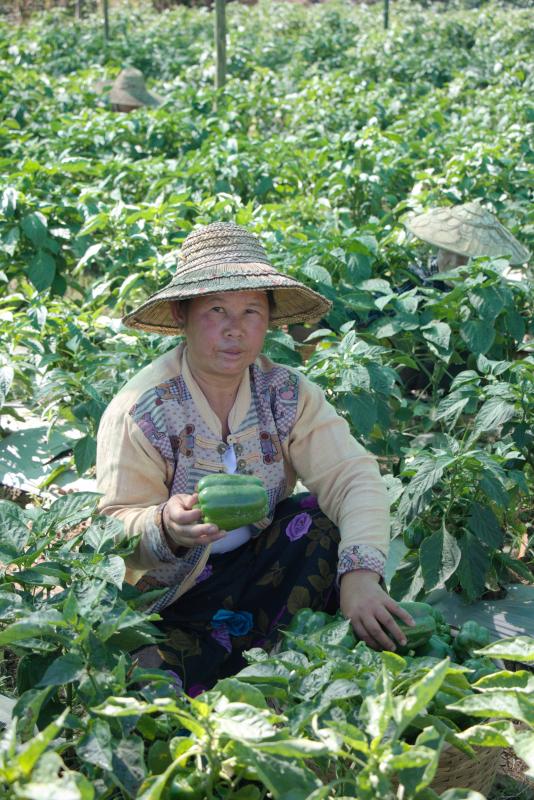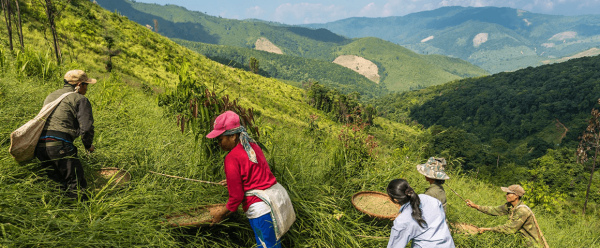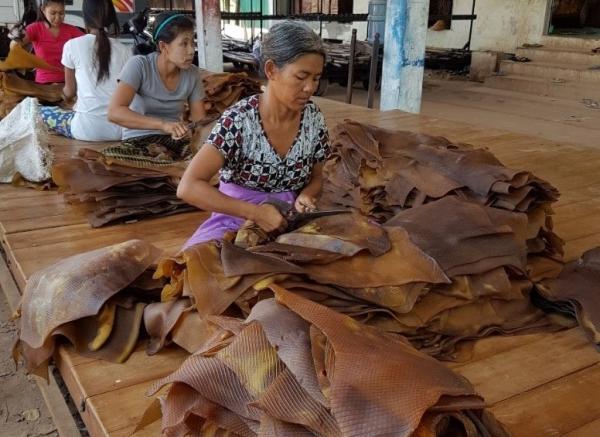Main research areas
- Rubber growing and the natural rubber value chain
- Development of more sustainable and inclusive food and farming systems.
Key figures
-
2
current projects
-
2
missions per year
Since the military coup in 2021, CIRAD’s activities have been considerably reduced. Thus, Myanmar’s participation in the regional ASSET, FORSEA, Geographical Indications (GI) and FSPI "One Health in practice in Southeast Asia" projects has not been possible as planned, but two actions are being followed up by CIRAD with local NGOs:
Support for the natural rubber value chain
The Myanmar GRO project (Generating Rubber Opportunities in Myanmar)
This development project is led by CARE International in Myanmar and funded by the Swiss Agency for Development and Cooperation (SDC). The aim is to improve the living conditions of rubber smallholders and tappers by supporting the development of an institutional framework that enables the rubber sector to become more competitive and resilient. Following several short missions starting in 2017, CIRAD was associated in 2019 as co-facilitator of the project, with the arrival of a researcher from the ABSys joint research unit in Rangoon (however, she had to leave the country after the military coup in February 2021 and move to Bangkok). She remained responsible for monitoring the extended phase of the project up to the end of 2022 from Thailand, with a strong reorientation towards humanitarian/emergency aid and, at the same time, maintaining the initial approach for developing market systems by relying more on partnerships with the private sector.
Find out more : Generating Rubber Opportunities in Myanmar
Natural rubber is the leading biosourced elastomer. It accounts for 48% of the global elastomer market. It is mostly (80%) produced by family farms of between 0.5 and 10 hectares, mainly in Asia. CIRAD is working to improve smallholder rubber growing, particularly by adapting it to climate change, and helping players in the value chain produce more while preserving the environment.
Support for agricultural value chains in Myanmar
Agricultural Innovation and Inclusive Value Chains for Food and Nutrition Security in Myanmar
This project (Alive-FNS) proposed by GRET and CIRAD was selected by the European Union for delegated funding from AFD. It was initially based on integration between a supply chain approach, a nutrition approach (Linking Agriculture and Natural Resource Management towards Nutrition Security, Lann+) and an agroecological approach, to ensure that agricultural development also means improvements in the nutritional status of the target populations. It was meant to be conducted in two highland areas: northern Chin State and southern Shan State. Following the coup, the project (which was launched in October 2021) ultimately focused on market gardening and konjac in northern Chin State, and on rice in the Irrawady Delta. It has been completely reorganized, with research operations being redeployed towards helping local populations (distribution of seed kits, payment for work). Activities began in year 1 with GRET and the Myanmar partners. This project is monitored by a researcher from the Moisa joint research unit and involves two researchers from the Tetis (remote sensing) joint research unit in Montpellier.
Main partners (2021-2022)
Other important partnerships suspended in 2021




























